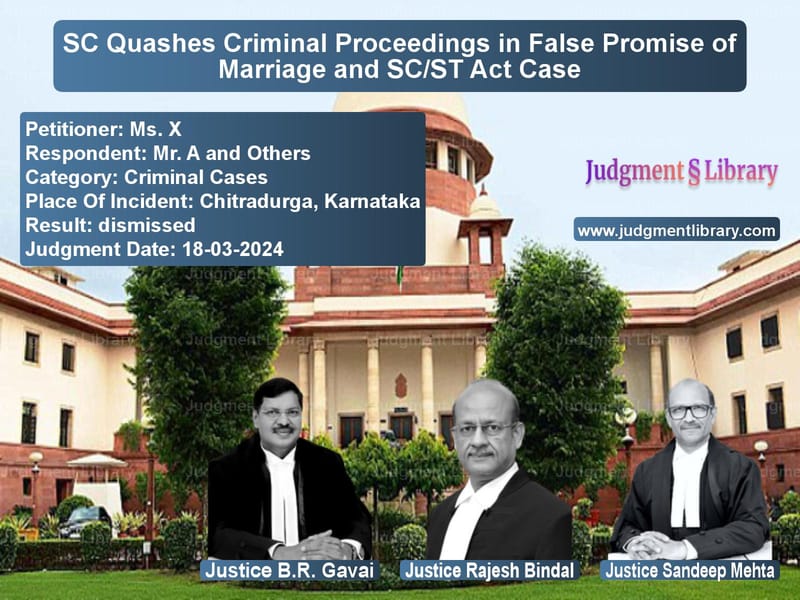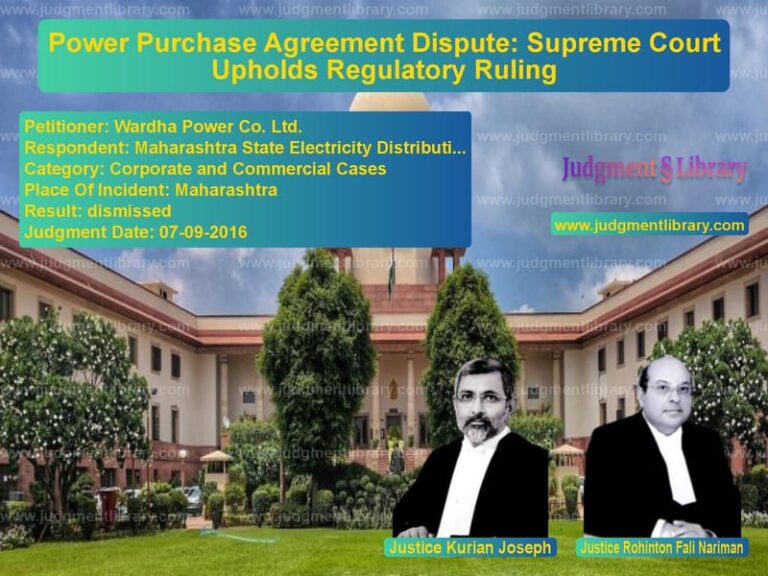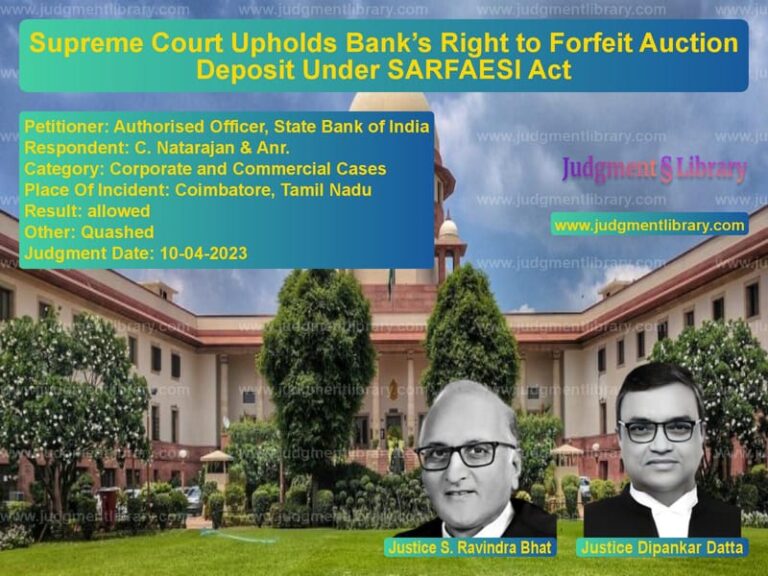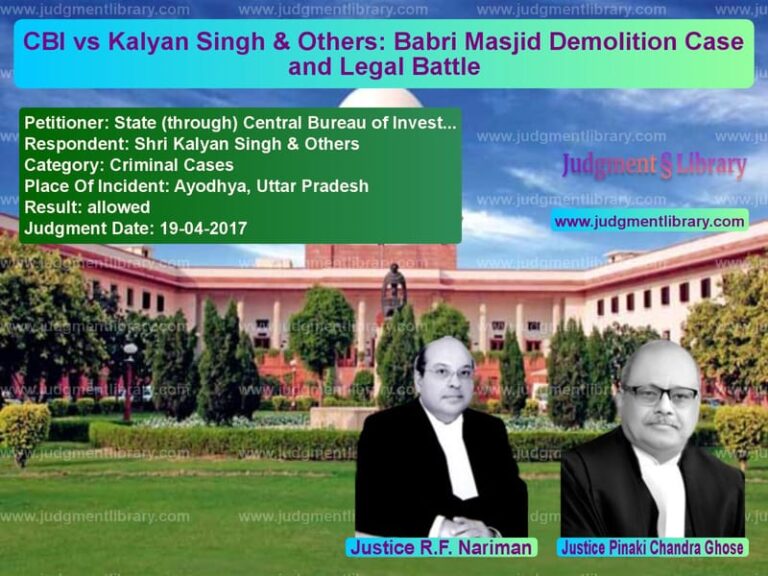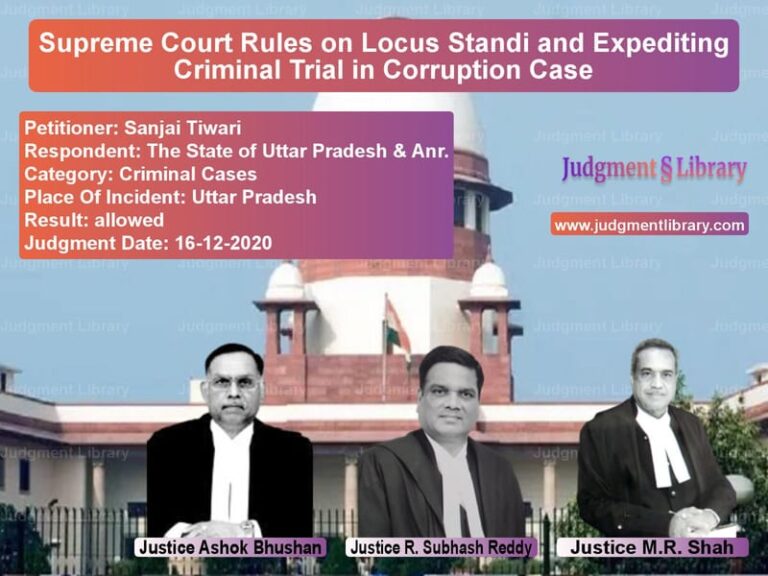SC Quashes Criminal Proceedings in False Promise of Marriage and SC/ST Act Case
The Supreme Court of India recently ruled on a case involving allegations of sexual assault, false promise of marriage, and violations under the Scheduled Castes and Scheduled Tribes (Prevention of Atrocities) Act, 1989 (SC/ST Act). The case, Ms. X vs. Mr. A and Others, originated from a complaint filed by the appellant, who alleged that she was misled into a relationship under the false pretense of marriage and subjected to forced abortion. The Karnataka High Court had quashed the criminal proceedings, leading to an appeal before the Supreme Court.
In a judgment authored by Justice B.R. Gavai, the Supreme Court upheld the Karnataka High Court’s decision to quash the proceedings. The ruling emphasized that the allegations did not establish the ingredients of the offenses charged, particularly under Section 376(2)(n) of the Indian Penal Code (IPC) and the SC/ST Act. The Court concluded that permitting the continuation of proceedings would constitute an abuse of legal process.
Case Background
The appellant, Ms. X, alleged that the respondent, Mr. A, developed a romantic relationship with her while they were preparing for a competitive examination. The appellant claimed that:
- In 2019, Mr. A took her to his aunt’s house in Chitradurga and had sexual intercourse with her on the false promise of marriage.
- Subsequently, Mr. A engaged in multiple instances of non-consensual sexual intercourse at his residence.
- She became pregnant, and six months into the pregnancy, Mr. A and his brother forcibly took her to a hospital for an abortion.
- When her parents approached Mr. A’s family seeking marriage, they refused, allegedly making derogatory remarks about her caste.
On October 1, 2020, the appellant lodged an FIR under various sections of the IPC and the SC/ST Act. After an investigation, a charge sheet was filed on December 22, 2020.
Legal Issues Raised
1. Was the Relationship Consensual?
The Karnataka High Court ruled that the relationship appeared consensual. The appellant and Mr. A had been in a relationship for over four years before the complaint was filed. The Court noted that a consensual relationship, even if it later deteriorates, does not amount to rape unless there is clear evidence that consent was obtained fraudulently.
Read also: https://judgmentlibrary.com/sc-orders-de-novo-trial-in-it-act-fraud-case-and-grants-bail-to-accused/
2. Was the False Promise of Marriage Sufficient to Establish Rape?
The Supreme Court cited the case of Pramod Suryabhan Pawar v. State of Maharashtra, stating:
“To establish whether the ‘consent’ was vitiated by a ‘misconception of fact’ arising out of a promise to marry, two propositions must be established. The promise of marriage must have been a false promise, given in bad faith and with no intention of being adhered to at the time it was given.”
The Court found no evidence that Mr. A never intended to marry the appellant when the relationship began.
3. Was the Alleged Forced Abortion Proven?
The appellant initially claimed she was taken to Krishna Nursing Home for an abortion. However, the doctor at the nursing home denied having any record of her. In a later statement, the appellant changed her version, stating that Mr. A had given her Ayurvedic medicine to terminate the pregnancy.
4. Did the Case Warrant Proceedings Under the SC/ST Act?
The appellant alleged that when her parents approached Mr. A’s family for marriage, they refused, citing her caste. The Court found that this statement alone did not justify proceedings under the SC/ST Act, as there was no evidence that the alleged caste-based remarks were made in a public place with the intent to humiliate.
Supreme Court’s Observations
The Court upheld the Karnataka High Court’s decision, stating:
“Even if the allegations made in the FIR and the material on which the prosecution relies are taken at their face value, there are no sufficient grounds for proceeding against the accused.”
Final Verdict
The Supreme Court dismissed the appeal, ruling that the Karnataka High Court was correct in quashing the criminal proceedings. The decision reinforces the principle that criminal law should not be misused to settle personal grievances and that consensual relationships cannot be retrospectively criminalized.
Key Takeaways
- A consensual relationship cannot be criminalized under false promise of marriage unless there is clear evidence of bad faith.
- Changing statements by the complainant can weaken the prosecution’s case.
- Allegations under the SC/ST Act must be substantiated with clear intent and public humiliation.
- High Courts have the power to quash criminal proceedings when there is insufficient evidence to support the charges.
The ruling serves as a precedent for similar cases, reinforcing judicial scrutiny in matters of consent and the misuse of criminal law.
Petitioner Name: Ms. X.Respondent Name: Mr. A and Others.Judgment By: Justice B.R. Gavai, Justice Rajesh Bindal, Justice Sandeep Mehta.Place Of Incident: Chitradurga, Karnataka.Judgment Date: 18-03-2024.
Don’t miss out on the full details! Download the complete judgment in PDF format below and gain valuable insights instantly!
Download Judgment: ms.-x-vs-mr.-a-and-others-supreme-court-of-india-judgment-dated-18-03-2024.pdf
Directly Download Judgment: Directly download this Judgment
See all petitions in Bail and Anticipatory Bail
See all petitions in SC/ST Act Case
See all petitions in Judgment by B R Gavai
See all petitions in Judgment by Rajesh Bindal
See all petitions in Judgment by Sandeep Mehta
See all petitions in dismissed
See all petitions in supreme court of India judgments March 2024
See all petitions in 2024 judgments
See all posts in Criminal Cases Category
See all allowed petitions in Criminal Cases Category
See all Dismissed petitions in Criminal Cases Category
See all partially allowed petitions in Criminal Cases Category

